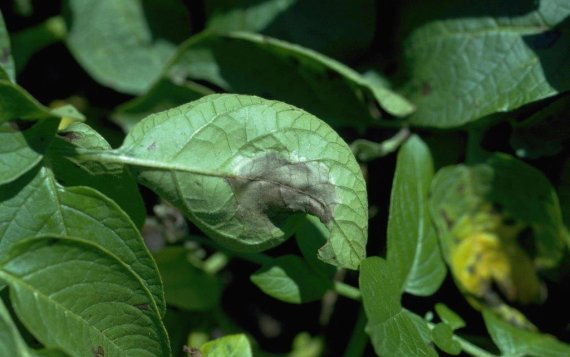©Wikipedia
Where do these new aggressive strains come from?
‘Phytophtora has a dynamic genome; it can copy or discard fragments of DNA very fast. If just one of those strains holds its own in a field of potatoes that gets sprayed with pesticides, then this strain will survive, push out other strains, and be able to develop into an epidemic.’
Will the new strains affect the potato harvest?
‘We shall see in the next few months. We don’t know whether the main potato varieties are resistant to these strains. That could vary from one variety to the next. Resistance to Phytophtora is important to the breeders, but even more important are the harvest, colour and taste of the potato.’
Why not build fast resistance into the potato?
‘You can do that but then you first have to find resistance genes in, for example, wild potatoes which successfully fend off this new aggressive strain. You can even pile up resistance genes in a potato, to ensure long-lasting resistance to Phytophtora. WUR’s DURPH project has demonstrated that. But then you still have to introduce those genes into an existing cultivar and go on propagating those tubers for another five years before you have enough seed potatoes. By that time there can already be new aggressive Phytophthora clones.’
So the pathogen is faster?
‘Phytophtorais so dynamic, it can discard genes so the resistant potato will no longer recognize it and will still get sick. Luckily we also have resistance genes which attach themselves to genes the pathogen always needs. Phytophtora can’t discard those genes but it has other ingenious methods up its sleeve for suppressing recognition.’
Who will win the race in the end?
‘That depends on your breeding technique. Vegetative propagation is the method currently used for potatoes, but you can also grow potatoes from seed, as the company Solynta has shown. In that case, after cross-breeding and selecting you can – in theory – very quickly obtain enough potatoes of a resistant variety.’

